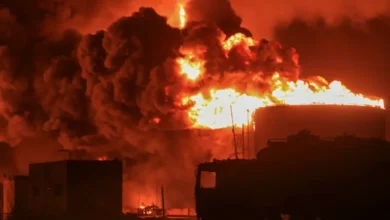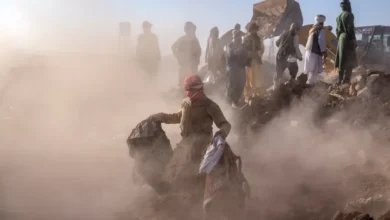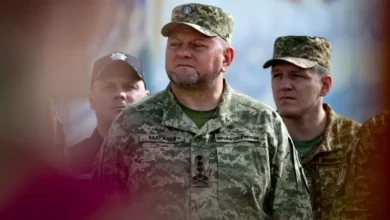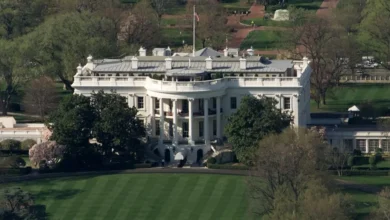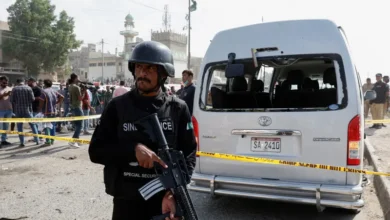Israeli strikes kill UN staff, more than 70 of his extended family in Gaza
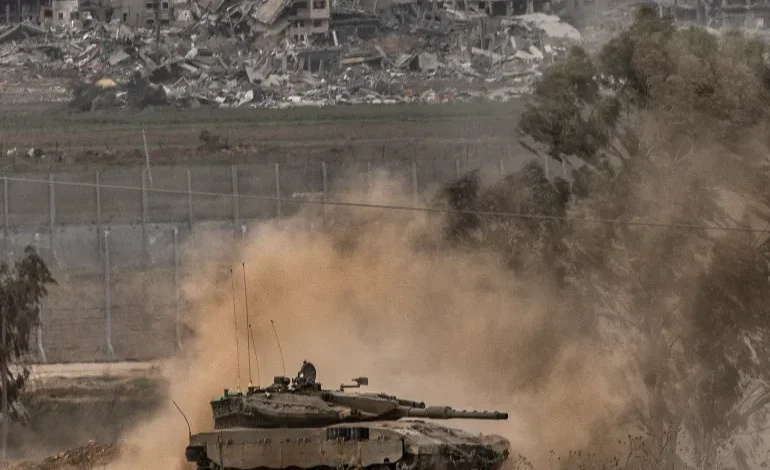
A United Nations official has been killed along with more than 70 members of his extended family in an Israeli air strike near Gaza City, as hundreds of people have been killed in intensified bombardment since Friday’s UN Security Council resolution that has been criticised as “woefully insufficient”.
Issam Al Mughrabi, 56, who worked for the United Nations Development Programme (UNDP) for three decades was killed along with his wife and children in an Israeli air strike on Friday.
“For almost 30 years, Issam has worked with UNDP through our Programme of Assistance to the Palestinian People,” UNDP administrator Achim Steiner said in a statement.
“The loss of Issam and his family has deeply affected us all. The UN and civilians in Gaza are not a target.”
Offering his condolences to Issam’s family and colleagues the World Health Organization’s chief Tedros Adhanom Ghebreyesus stressed in a post on X that “humanitarians should never be victims” and called for a ceasefire.
On Friday, the international agency’s secretary-general Antonio Guterres said that throughout the UN’s history, they had never witnessed the death of their staff in such large numbers.
“Most of our staff have been forced from their homes,” he added in a post on X, paying tribute to UN members working in Gaza.
Difficult weekend for Gaza and the Israeli army
The death of the veteran UN staff member and his family members comes as Israeli air strikes continue to kill hundreds of Palestinians in the Gaza Strip.
In the early hours of Sunday, a 13-year-old child was also killed by an Israeli drone near El Amal Hospital in Khan Younis, according to the Palestine Red Crescent Society.
More than 8,000 children have been killed in Gaza since the Israel-Hamas war began on October 7.
Gaza’s Ministry of Health said that at least 166 Palestinians were killed in the past 24 hours in Gaza.
Reporting from Rafah in southern Gaza, Al Jazeera’s Hani Mahmoud said that Saturday overnight, more residential areas in Deir el-Balah city, where people from places such as the Bureij and Nuseirat refugee camps were ordered to evacuate, came under heavy bombardment, and homes were destroyed. He said the eastern side of the Gaza Strip was also experiencing fierce airstrikes.
Meanwhile, Al Jazeera’s Alan Fisher highlighted how it has also been a difficult weekend for the Israeli army in Gaza, with five soldiers killed on Friday and eight on Saturday, due to fierce fighting in the Strip.
“You’ve heard from the Israelis suggesting that in northern Gaza, they had military control. The fact that they are still losing soldiers, that rockets are still being fired from Gaza towards Israel, would suggest that they don’t have that control and that means that this phase of the war is likely to go on for longer,” Fisher said, reporting from Ramallah, in the occupied West Bank.
Difficulty in delivering aid
On Friday, the UN passed a resolution after days of delays that watered down the language. It called for aid delivery but could not agree on a ceasefire. Aid groups say the relentless bombardment and the fierce fighting between the Israeli army and Hamas have impeded aid delivery in the besieged enclave where people are facing hunger.
“The real problem is that the way Israel is conducting this offensive is creating massive obstacles to the distribution of humanitarian aid inside Gaza,” UN chief Guterres said.
“An effective aid operation in Gaza requires security, staff who can work in safety, logistical capacity, and the resumption of commercial activity. These four elements do not exist,” he added.
UNRWA director Thomas White shared similar concerns and highlighted that conditions on the ground for aid workers should be secure, for aid deliveries to be carried out.
“We need a ceasefire that will stop the killing of civilians and destruction of civilian infrastructure in Gaza,” he said.
